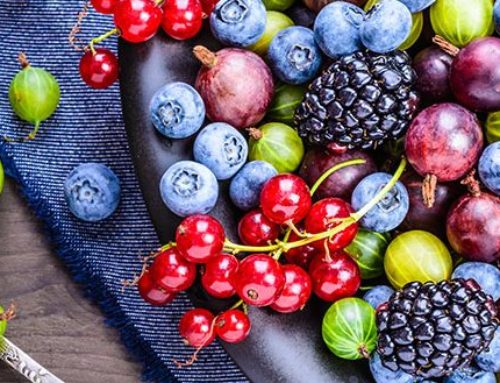It’s late and you’re wide awake. On your back, you stare at the ceiling worrying about the sleep you’re not getting. You put your right foot out, you put your right foot in, you put your left foot out, you put your left foot in, as if the “hokie pokie” will finally help you drift off, but that doesn’t work either. Sleep just isn’t coming and it’s a frustrating situation. Aside from the frustration, not getting a good night’s sleep can have a negative effect on your physical and mental health and lead to issues like memory problems, depressed mood, daytime sleepiness, increased use of over the counter sleep aids and even nighttime falls. It’s also been linked to a lower quality of life over all.[1]
Your Circadian Rhythm
Things like your environment, your lifestyle, your physical and mental health all can disrupt your circadian rhythm. Your circadian rhythm is important in determining your sleep cycles, hormone release, body temperature and other important bodily functions. It’s also been linked to various sleep disorders, such as insomnia.[2] Specific factors that can disrupt your circadian rhythm include some prescription medications, drug and alcohol abuse, and disorders. Even your occupation and the type of work you do can disrupt your circadian rhythm. For instance, airline pilots who cross several time-zones and regions of sunlight and darkness in one day often have disrupted sleep patterns.
There may also be simple things you can change about your lifestyle that can help you get the Zs you need. Here are 7 common things you can change to get a better night’s sleep.
7 Common Things That May Be Keeping You Up at Night
What You Drink
 1 – Caffeine
1 – Caffeine
The big culprit here is caffeine and while coffee and soda might spring to mind remember that some teas and even over the counter medications may contain caffeine. Be a label detective and opt for caffeine free alternatives whenever possible to avoid tossing and turning all night.
2 – Water
Water is good for you, in fact you should be consuming a lot through out the day. Multiply your body weight in pounds by .5 and that is the number of ounces you should be consuming daily. However, it’s best to get in your water allotment well before bedtime. Consume lots of water just before bed and you’ll be up all night going to the bathroom.
3 – Alcohol
It might seem that a nice glass of wine before bed helps you sleep but it really doesn’t. Drinking, even a little alcohol, before bed can cause you to wake up during the night when the effects of the alcohol wear off. Additionally, numerous studies have shown that alcohol does not improve the quality of sleep and in fact reduces REM (rapid eye movement) sleep.[3]
What You Eat
4 – Tomato Based Foods
Many tomato based foods are acidic and can cause heartburn and discomfort during the night and that can keep you awake.[4] For a better night’s sleep avoid spicy foods.
5 – Celery
I know, kind of surprising to see celery on the list right? Well, it turns out that eating celery before bed can cause you to wake up in the middle of the night to go to the bathroom. Celery is a natural diuretic and can elevate your rate of urination because diuretics push water through your system.[5]
What You Do
 6 – Using Your Phone or Computer
6 – Using Your Phone or Computer
Many people like to use electronics before bed, but the light from your computer and cell phone can disrupt your sleep, according to WebMD.[6] It seems that blue light suppresses melatonin production, can negatively impact your circadian rhythm and can cause sleep disruption.[7]
7 – When You Sleep
Your kids have a consistent bedtime but is it important for adults to have a consistent bedtime too? According to Sleep.org it is very important and can greatly improve the quality and quantity of the sleep you get each night. In her article, The Importance of Routine in Our Daily Lives, Ph.D Natalie Dautovich says that…
“...With regular daily activities, our various body systems are able to prepare for and anticipate events. We naturally become more alert closer to our wake-up time. Our digestive systems become activated in advance of regular meal times in order to more efficiently process food. We start to relax and become sleepy prior to bedtimes. It turns out that these regular daily events serve to anchor our underlying daily rhythms.” – curated from https://sleep.org/articles/day-in-day-out-the-importance-of-routine-in-our-daily-lives/
Conclusion
Sleepless nights could be the result of something as simple as what you’re eating, drinking or doing. If you’re struggling to get a good night’s sleep try making some of these simple changes and rest easy!
References
- Of, N. I., Health. (n.d.). Do People Need Less Sleep As They Age? – AgingCare.com. Retrieved August 22, 2016, from https://www.agingcare.com/Articles/Sleep-and-Aging-133153.htm
- Circadian Rhythms Fact Sheet. (2012, November). Retrieved August 22, 2016, from https://www.nigms.nih.gov/Education/Pages/Factsheet_CircadianRhythms.aspx
-
Alcohol and a Good Night’s Sleep Don’t Mix. (n.d.). Retrieved August 24, 2016, from http://www.webmd.com/sleep-disorders/news/20130118/alcohol-sleep#1
- Patton, A. (2013, November 05). 5 Foods That Are Keeping You Up At Night. Retrieved August 24, 2016, from http://www.womenshealthmag.com/food/things-that-keep-you-up/slide/6
- 10 foods to avoid before bed | Fox News. (2012, April 15). Retrieved August 24, 2016, from http://www.foxnews.com/health/2012/04/13/10-foods-to-avoid-before-bed.html
- How TV, Internet, and Other Electronic Devices Impact Sleep. (n.d.). Retrieved August 24, 2016, from http://www.webmd.com/sleep-disorders/features/power-down-better-sleep#1
- Circadian rhythm. (2016, August 9). Retrieved August 22, 2016, from https://en.wikipedia.org/wiki/Circadian_rhythm




